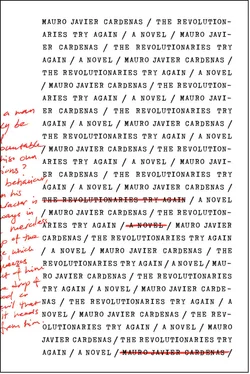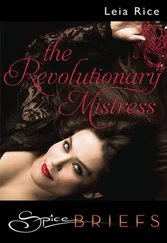XVII / ANTONIO EDITS HIS BABY CHRIST MEMOIR
And if all our actions, from breathing to the founding of empires or metaphysical systems, derive from an illusion as to our importance, the same is true a fortiori of the prophetic instinct. Who, with the exact vision of his nullity, would try to be effective and turn himself into a savior?
— CIORAN
The baby christ wept soon after we reached my Uncle Fernando’s house. I had never seen his house before, but I had advocated it as a Christmas location because I knew it had been built in the newest and most exclusive neighborhood in Guayaquil, L’Hermitage, which was not far from San Javier and Ciudadela Los Ceibos. Since no one came to open the gates immediately, my grandmother aired her frustration about how hard it was to find good service. From a narrow cement booth the guard rushed out, desperately trying to tuck his uniform shirt in and appear less asleep. He waved at my uncle, bowing repeatedly, then pulled the gates open. My grandmother rolled her eyes, just as she had done earlier with Maria. After finishing the kitchen, Maria had reported that she was done and had asked for permission to leave. My grandmother had rebuffed her, clinically explaining that there were still the floors to mop, the bathrooms to disinfect, and plenty of garbage to take out. But señora, Maria had pleaded, it’s Christmas Eve.
—
What does it matter if his memoir about the night the baby christ cried lacks a singular style, Antonio thinks (and here Antonio searches online for Proust’s notion of style as quality of vision — the revelation of the particular universe that each of us sees, Proust wrote, and that other people don’t see —), or rather what does it matter if he’s so dispirited about his lack of a singular style in the one short story that’s really a memoir that seemed to him salvageable from the morass of overwrought sarcasm he’d written before rushing back to Ecuador so he could fail to save the natives or, as it’s becoming apparent to him, not that salvageable because if what remains of the night the baby christ cried is mostly an impulse to revisit that night, then what shouldn’t remain of that night in text is these drab sentences and their cargo of fabrications, because years from now he will have forgotten even more about that night so he’s likely to return to this text about that night and what will remain for him will be these drab sentences in English, and so perhaps this whole text about the baby christ should be crossed out and he should start again, or he should not start again until he figures out how to perform in text his impulse to revisit what he has mostly forgotten instead of trying to fill in with narrative fabrications what he has forgotten (a performance of an impulse meaning an exhaustion of an impulse as a way to dramatize that impulse?), in any case what does it matter if he feels compelled to revisit the night the baby christ cried if on the patio of the Belgian café in the Hayes Valley district of San Francisco, where he’s editing this memoir about the baby christ, three tall women in sundresses are asking him where’s he from, what’s he writing about, what’s his name, and perhaps he’s writing about crying figurines so he can impress tall, hot women in sundresses like these — I write so I can impress hot young boys, Foucault said — but the less cynical side of him, which he hasn’t been able to transcribe into text yet, knows that he’s revisiting what he’s revisiting because that’s where he still exists, where he finds solace despite the disheartening contents, although one day he will have lived among the sundresses long enough that perhaps he’ll also find solace in revisiting his life among the sundresses (and here Antonio searches for a passage from Faulkner contradicting what he’s been thinking — the past is not a diminishing road but, instead, Faulkner wrote, a huge meadow which no winter ever quite touches, divided for the old by the narrow bottle neck of the most recent decade of years —), but before he revisits his life among the sundresses he’s likely to revisit his short stint failing to run for office with Leopoldo, which will allow him to feel useful without having done anything to be useful, or perhaps revisiting his short stint failing to run for office with Leopoldo will be his lamb’s blood, forcing him to confront his uselessness on a daily basis and ask himself how are we to be humans in a world of destitution and injustice, and yet if his eighteen years in Ecuador are his huge meadow that no winter can touch, Antonio thinks, if San Javier and Leopoldo and the baby christ and Cajas and the hospice Luis Plaza Dañín will never vanish from him completely, can he at least attempt to reinterpret those years so that he isn’t so susceptible to run off with whatever caravan of change reminds him of the intensity he felt during those years, no, forget reinterpretation, Drool, encumber yourself with enough comforts and you’ll never leave San Francisco again.
—
L’Hermitage is one of the many gated communities in Ecuador, which I was to see again many years later in the moneyed areas of Venezuela, Colombia, and Bolivia. The neighborhood was so new that the lampposts were still headless, illuminating nothing. The houses on this hill must have been as long and wide as their pools and tennis courts, but because it was dark and because these houses were probably fortresses surrounded by white concrete walls it was difficult to tell how big they really were. There must have been no more than twenty houses total. Some of them, the dark ones without flickering Christmas lights, were obviously empty. Others, mounted with cane and rope structures, were still under construction. Three years later, Stephan Bohorquez, a classmate at San Javier, was to move from the other side of town into one of these houses soon after his father had been appointed to an important government post, and when his parents were out on official business, Stephan would splurge on prostitutes and whiskey and throw parties for us and eventually, when his allowance ran out, he would steal his mother’s dresses and use them to barter with his favorite prostitutes. None of us brought up the obvious question of where the money came from. Stephan’s pool was refreshing and the Chivas was free and we knew where the money came from in any case.
—
To search for the source of his impulse to return to Ecuador by revisiting the night the baby christ cried was pointless, Antonio thinks, just as it’s pointless for him to teach English to immigrant women at El Centro Legal for one measly hour a week, photocopying pages from an ESL book at the last minute and hoping they would smile at him in gratitude, knowing he was fooling himself into believing he was being useful — if all the NGOs and nonprofits of the world ceased their activities, Antonio had asked a British art critic during their first date, would anyone notice? — just as it was pointless and childish for him to imagine the possibility of deforming American English as revenge for Americans deforming Latin America with their interventionist policies, and if he continued in this vein there would be nothing left, everything’s pointless, congratulations, Antonio, now what?
—
As soon as we entered his house, my Uncle Fernando said so very sorry. I should’ve mentioned it before. Most of our furniture is still in transit, on some ship in the Atlantic, I suppose. My sincere apologies. He nonetheless gave us a proud tour of his house, which looked like a vacant museum of modern art. We gathered in his living room. My grandmother placed the baby christ by the cemented chimney. Before Christmas, she would always arrange a nativity scene for us at her house. On top of wooden fruit boxes, she would place a grass green blanket, reserving the topmost spot for the baby christ, which was not to take its place until after Mass, and then she would populate the rest of her valley with Mary, Joseph, the three magi, and below them bushes and trees and the earless donkey I used to play with when I was five years old. But my grandmother did not bring any of it to my uncle’s house, so by the fake chimney the baby christ looked out of place. My Uncle Fernando brought two garbage bags bloated with gifts wrapped in jingles. I do not remember what happened next, or how much time passed between my grandfather bringing us kitchen chairs so we could all sit in the living room and then someone yelling the baby christ! The scream had the authority of panic. Everyone congregated around the baby christ, several steps removed. Tears were materializing beneath both eyes, falling in urgent succession, as if an actual child were trying to burst out from the immobility he had been condemned to. His eyes stared at us, or past us, and the urgency of his tears, combined with the indifference of the clay, consigned him to an eerie sadness.
Читать дальше












